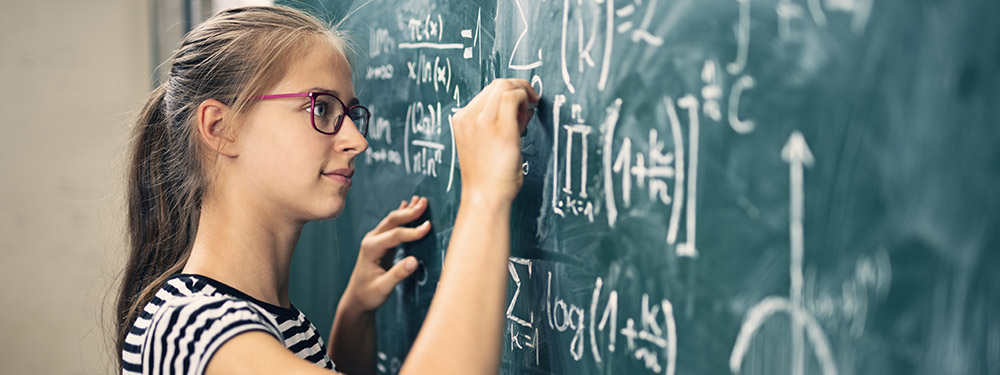
St John The Baptist School, Woking
Over the last six years SJB has focused on developing and implementing a mastery approach for teachers to support their move towards a mastery curriculum. Through their work researching and trialling strategies for a mastery curriculum they recognised the importance for teachers and staff of having a deep understanding of how students learn and process the information. We therefore recognised the need to upskill staff regarding their knowledge of the cognitive science of learning, in theory and in practice.
This work was designed to develop the knowledge and understanding of staff through leveraging external expertise and then internal training of staff. They used the mediums that exist within the school to develop learning and teaching: collaborative learning teams, learning group, inset days and staff meetings. They felt that the mastery model they had developed and successfully implemented could be supported further by staff and students having an understanding of the science of learning. This would ensure teachers were able to plan lessons and curricula to sustain the attention of students, ensuring working memory was supported fully. Furthermore, that strategies could be implemented successfully in subjects to improve long-term memory through various interleaving and spaced practice approaches.
Building staff expertise
- Staff studied the theory of cognitive science and completed activities to reflect on current practices in the school. They also focused on how the understanding of cognitive science could support education and student learning in the classroom.
- The mastery collaboration team, which is part of the whole school learning and teaching initiatives, were asked to research and trial various strategies. These strategies were linked to the three stages of the theory of information processing in order to analyse their effectiveness. Throughout the year, a group of staff from various subjects across the school met together to discuss strategies associated with attention, working memory and long-term memory, highlighting the merits and pitfalls seen when applied in the classroom. Adaptions to strategies were made and successful strategies were then shared further across the school through staff meetings and inset days.
- Multiple inset training days focused on developing staff knowledge of the cognitive science of learning and provided strategies for staff to implement into lessons. During training, research and appropriate literature were shared with staff to help develop their understanding of cognitive science and the benefits within the classroom. Evidence of student work, teaching videos and student feedback of strategies were shared with the staff to highlight the merits this work had.
- Peer collaboration weeks, where staff are paired together to observe or discuss strategies implemented, gave staff an opportunity to take the input provided and apply it to the classroom. It also provided them with a forum through which to reflect on their personal practice.
- As well as developing staff understanding of the theory of information processing, they wanted to ensure that students understood how they learn. Several lessons were developed for year 7 and year 11 to teach them the theory of cognitive learning and potential strategies they could use to support they own learning journey. Upskilling students in the cognitive science of learning is still in the early stages. Further development of this will take place this year, ensuring students are given the skills and confidence to take ownership for their learning.
As a result of this work, staff have approached teaching/planning differently ensuring they think about each stage of information-processing particularly when introducing new concepts. The school has designed icons which are used across all subjects to help reduce cognitive load and support dual coding. They have also introduced webcams and visualisers to support modelling strategies
The team at St John The Baptist are now working to further develop students’ independence through a focus on metacognition and self-regulation. They are planning further training for staff, working towards a school-wide consensus on the meaning of these terms and how they apply to students’ learning. They are also training students in metacognitive and self-regulation strategies by working with representatives from their student leadership team who are attached to the mastery collaborative learning team. They intend to further empower students in their own learning by developing lessons that can be delivered through form time and PSHE that teach the cognitive science of learning and metacognition strategies.
The team at St John The Baptist have shared some key advice for other schools that are looking to develop practice in this area:
- Keep it simple – over-complication of lessons/too much information can be the fastest way to lose the attention of students and overload their working memory
- Look at the interconnectivity of your subject – how can you interleave topics and revisit concepts to support long-term memory?
- Develop department/school wide icons – icons can remove the need for long winded instructions and reduce cognitive overload and support students’ working memory
- Train the children in the cognitive science of learning so they can recognise how best to learn
- Ensure curriculum design is intertwined with pedagogy to support learning and remembering over time.

UK sfia framework on said:
Whether it be through independent learning or workplace training, employers should take it upon themselves to offer learning and development opportunities for their team.